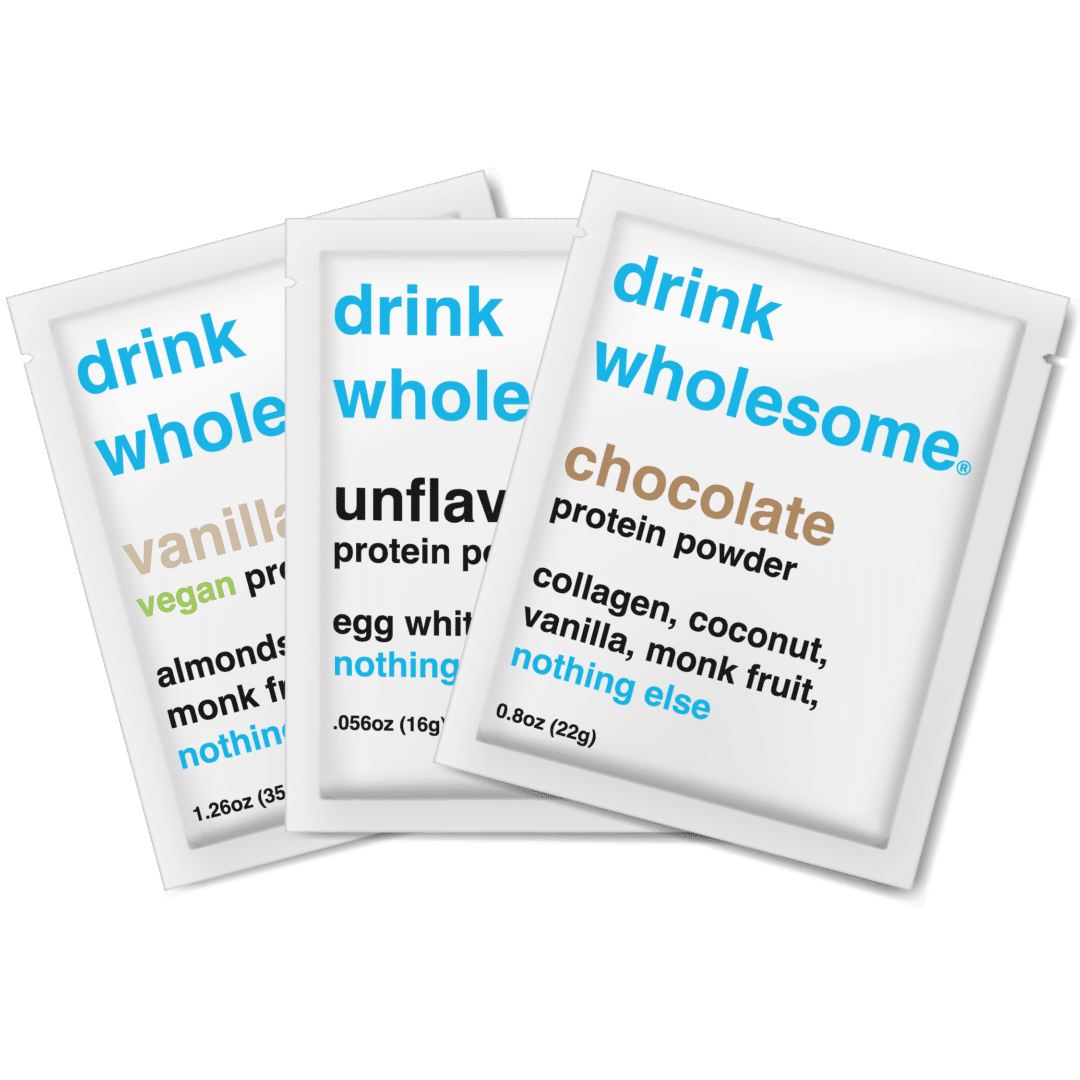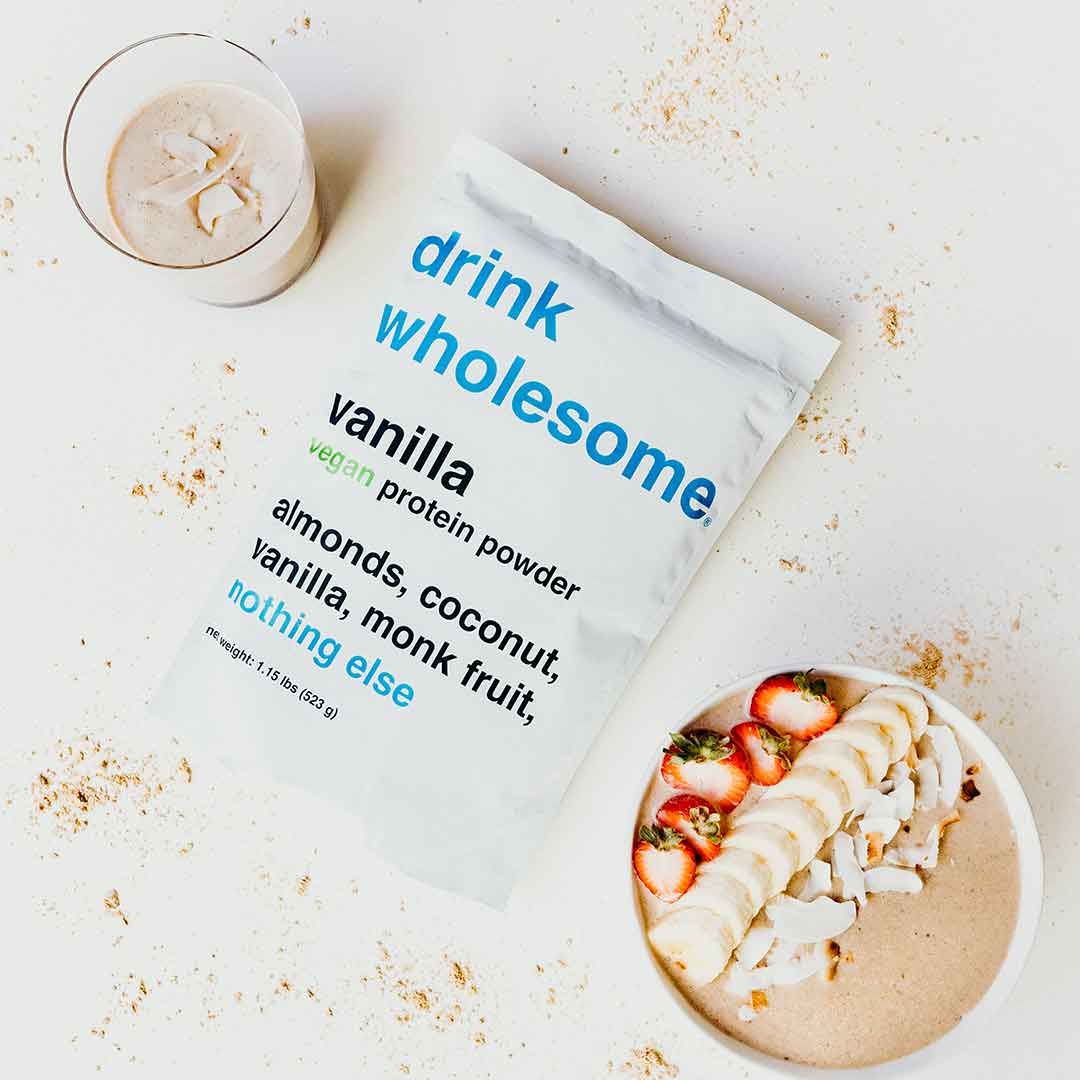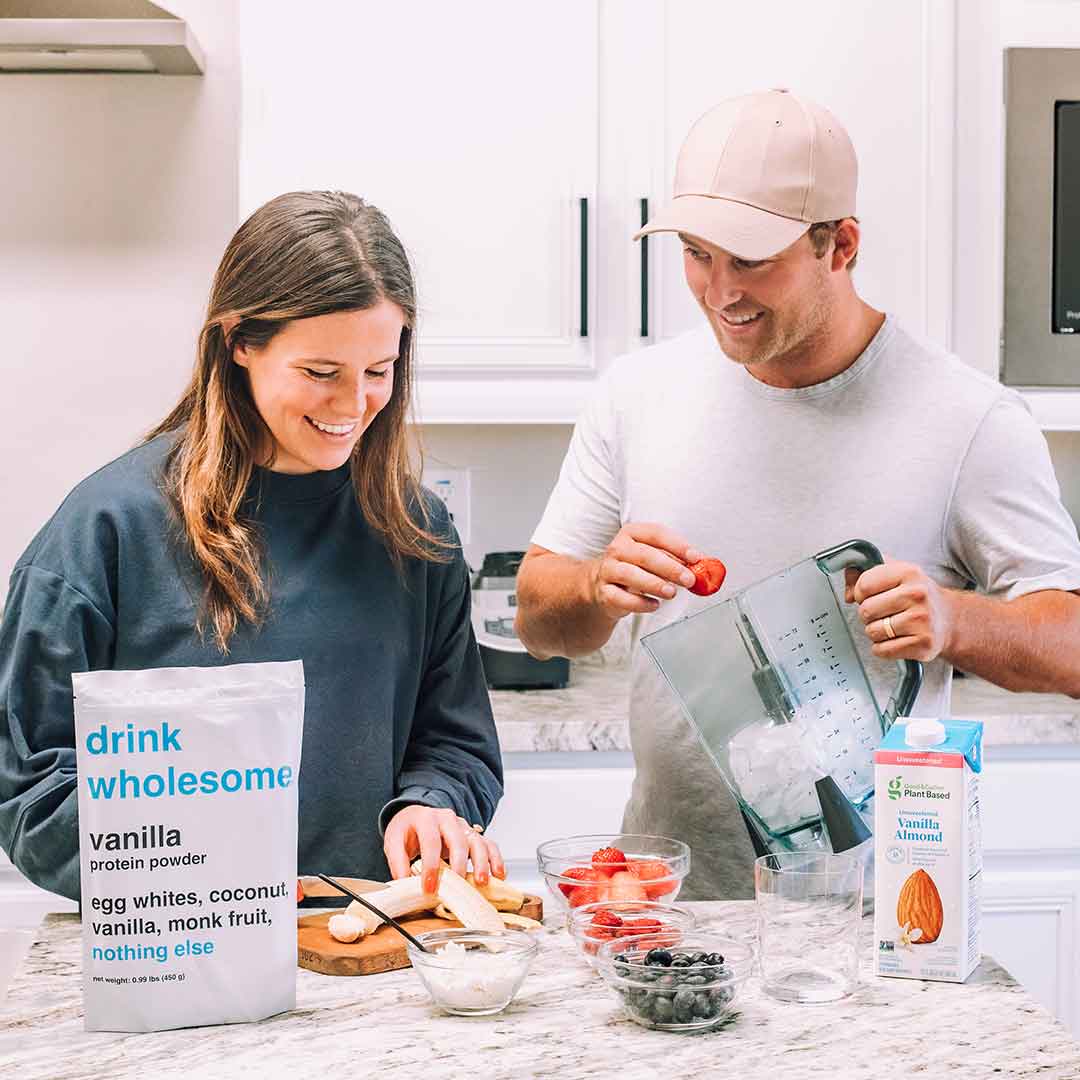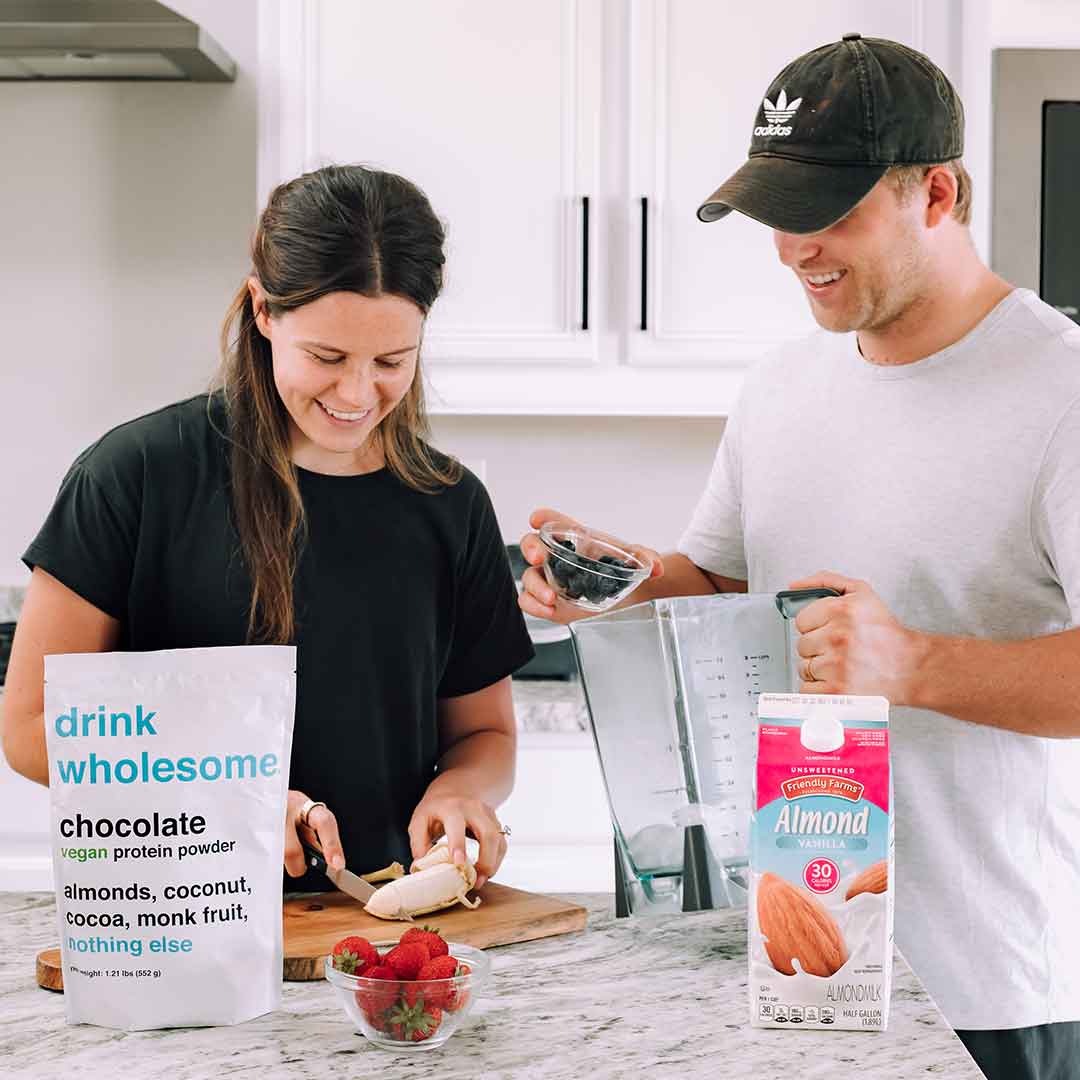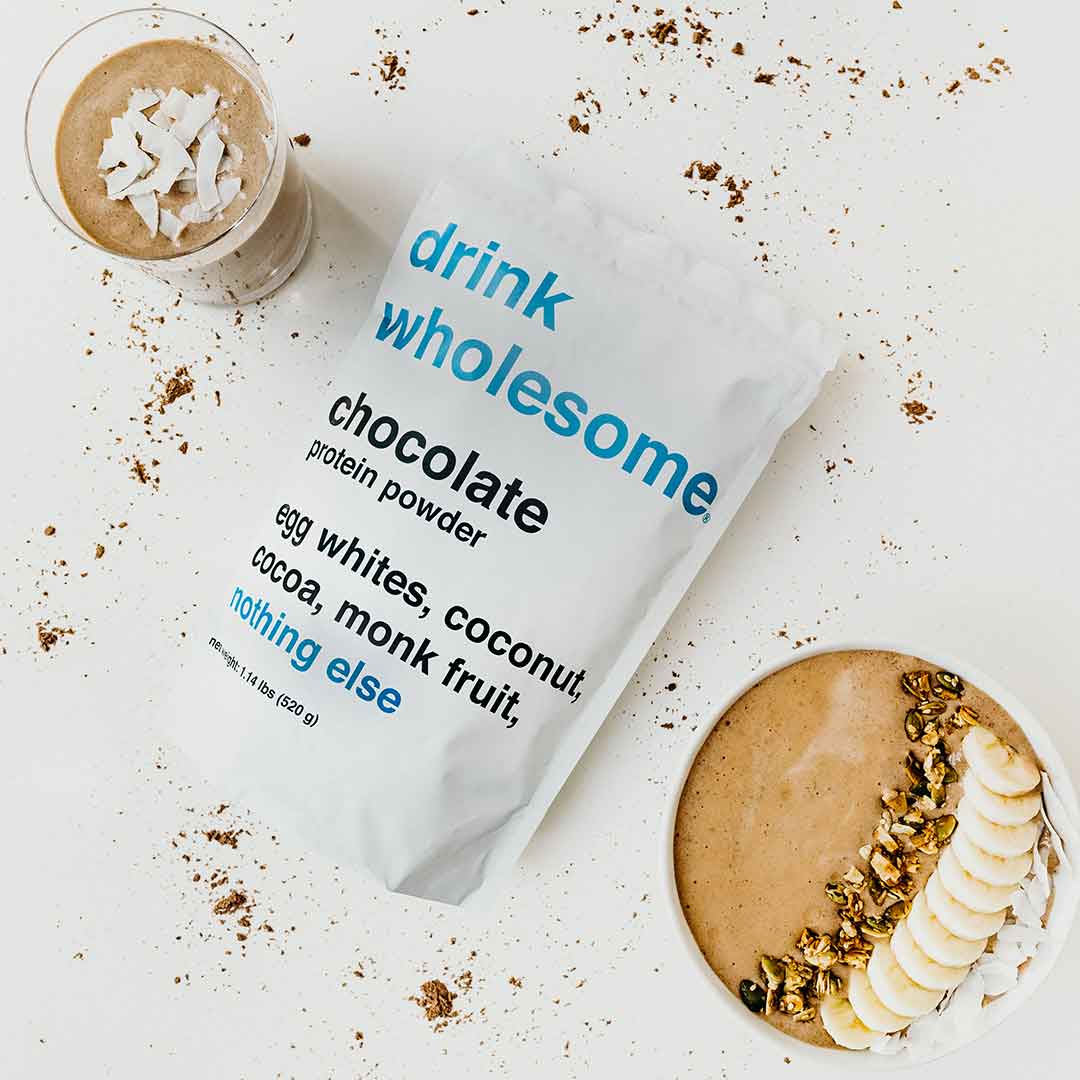Protein shakes can make you gain weight without working out.
Will protein shakes make you gain weight?
Although protein shakes are often championed as a weight loss food, they can also help you gain weight. This may seem paradoxical, but it makes perfect sense because depending on how they are used, protein shakes can help you achieve a calorie deficit or a calorie surplus.
Losing weight is all about achieving and maintaining a calorie deficit – eating fewer calories than you burn. You have to burn 3,500 more calories than you eat to lose a pound, and to lose weight at a safe rate – 0.5 pound per week – you will need to eat 1,750 fewer calories weekly, or 250 calories daily. Replacing a meal or part of a meal with a protein shake can help you eat less. This works because high protein foods are among the most satiating foods. They keep you feeling full for longer, which helps prevent cravings and overeating. In other words, increasing the percentage of your calories that come from high protein foods can help you lose weight.
Gaining weight is all about achieving and maintaining a calorie surplus – eating more calories than you burn. It takes an extra 3,500 calories to gain a pound, and to gain weight at a safe rate – 0.5 pound per week – you will need to eat an extra 1,750 calories weekly, or 250 calories daily. Adding a protein shake to your diet is an easy way to eat an extra 250 calories because it is easier to drink your calories than it is to chew them.
So, do protein shakes make you gain weight without working out? Protein shakes can make you gain weight without working out as long as they help you achieve and maintain a calorie surplus.
Can you use protein shakes for muscle gain?
If you are not only looking to gain weight, but also looking to gain muscle mass, then you are going have to work out. Essentially, muscle growth can occur only if muscle protein synthesis exceeds muscle protein breakdown. This is called positive muscle protein balance, and is regulated by two mechanisms: amino acid availability and resistance exercise. Amino acids are the building blocks of protein. There are 20 of them, 9 of which are essential and must come from food. Resistance exercise is the use of resistance to muscular contraction to build skeletal muscle mass. Both amino acid availability (dietary protein) and resistance exercise (strength or weight training) are required to build muscle, and if one of the two is absent, muscle building cannot occur. This is why you have to “work out” in order to gain muscle mass. I used quotation marks because working out does not necessarily mean going to the gym. Daily activities like walking and vacuuming can also help you build muscle.
What happens if you drink protein shakes without working out? Again, if drinking protein shakes helps you achieve and maintain a calorie deficit, you will lose weight, and if it helps you achieve and maintain a calorie surplus, you will gain weight. Whether or not protein shakes help you build muscle depends primarily on whether or not you work out. If you start drinking protein shakes but do not workout, do not expect to gain much muscle mass.
How much protein do you need?
The current recommended dietary allowance (RDA) for protein is 0.8 grams per kilogram of body weight a day for sedentary adults. This amounts to about 56 grams per day for the average man, and about 46 grams for the average woman. These numbers can vary depending on a number of factors, however, including activity level, age, and health. People who regularly lift weights, for instance, may need as much as 1.6 grams of protein per kilogram of body weight. This means that a 150 pound person who does regular strength training may need to consume over 100 grams of protein each day! Use our Daily Protein Intake Calculator to figure out how much protein you need.
Getting enough protein from normal food can be challenging, especially if you are vegan or vegetarian. This is where protein shakes come in handy. Adding a protein shake is an easy way to ensure that you are meeting your protein goals. That said, not all protein shakes are created equal.
What are the best protein shakes for weight gain?
There are two types of protein shakes: ready-to-drink (store-bought) protein shakes, and protein shakes made with protein powder. In order to make weight gain protein shakes with protein powder, you have to mix the powder with milk or water. This requires a blender or a shaker bottle, and a little extra time and effort. Some people prefer ready-to-drink protein shakes because they are more convenient, but if they knew what they were drinking, they would probably feel sick.
Ready-to-drink protein shakes are full of emulsifiers, stabilizers, thickeners, sweeteners, and flavors. Ingredients like these improve characteristics like taste, texture, and shelf stability, but can cause uncomfortable side effects and long-term gut damage (more about this soon). This is why I recommend that you make your own weight gain protein shakes with protein powder. That said, not all protein powders are created equal, and many contain the same additives found in ready-to-drink protein shakes!
One of the reasons why we make the best protein shakes is that we do not use food additives. Most protein supplements, on the other hand, are full of food additives. Although not necessarily bad for you in small quantities, additives can add up quickly (especially if you drink a protein shake every day) and cause gastrointestinal (GI) side effects like bloating, constipation, diarrhea, gas, and stomach pain. This is because food additives are hard to digest, and sit in your gut for longer than food should, which gives your gut bacteria more time to eat. As they eat, these bacteria produce gas, which causes bloating and stomach pain. Gas also slows colonic transit (the amount of time it takes food to travel through the colon), and can lead to constipation. In the long term, food additives can disrupt regulatory pathways in the intestine, which can result in the development of inflammatory bowel disease (IBD) and systemic inflammatory disorders.


